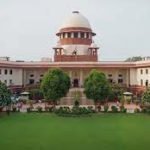The appellant, Rofiqul Hoque, was declared a foreigner by an order of the Foreigners Tribunal, Jorhat, Assam, dated 04.03.2017, for having allegedly entered India illegally after 25.03.1971.
This declaration was based on a preliminary police inquiry.
The appellant challenged this order before the Guwahati High Court via a writ petition, which was subsequently dismissed on 20.11.2017.
To support his claim of being an Indian citizen, the appellant submitted various documents, including a school certificate (Ext-1) and extracts from voters lists of 1966, 1970, 1993, 2010, and 2016.
The Tribunal and High Court found significant discrepancies in the submitted evidence. The school certificate was deemed unreliable as it was a duplicate and issued 10 years after the appellant left school.. Voter lists showed inconsistencies in age, parentage, and place of residence for his claimed grandfather, Joynal Abdin Sekih.
After the High Court’s order, the appellant was detained but later released from the Detention Centre by the Supreme Court’s direction on 30.07.2018, when his name was found to be included in the draft NRC.
Law Involved
Foreigners Act, 1946: This Act governs the declaration of individuals as foreigners.
Section 9 of the Foreigners Act, 1946: Places the burden of proving citizenship on the individual claiming to be an Indian citizen.
Article 226 of the Constitution of India: Pertains to the writ jurisdiction of High Courts.
Article 136 of the Constitution of India: Grants the Supreme Court special leave to appeal, under which the present appeal was filed. The Court’s power under this Article to interfere with concurrent findings is limited to cases of legal infirmity or perversity.
Citizenship (Registration of Citizens and Issue of National Identity Cards) Rules, 2003: Specifically Rule 4A, which deals with special provisions for the National Register of Indian Citizens in Assam, including the scrutiny of applications and the exclusion of names of declared illegal migrants or foreigners.
Precedent: The Court referred to Abdul Kuddus vs. Union of India and others to clarify the relationship between the Foreigners Act, the Citizenship Act, and the NRC rules, particularly concerning the meaning of “competent authority”.
Reasoning
The Supreme Court found that both the Tribunal and the High Court had “adopted a pedantic approach in discarding the documents” presented by the appellant due to “minor discrepancies”.
However, despite acknowledging the appellant’s argument, the Court agreed with the lower courts that the discrepancies in the evidence were substantial and not minor, rendering the documents unreliable. For instance, the school leaving certificate was a duplicate, issued 10 years after the appellant left school without proof of loss of the original. The voter list entries for his claimed grandfather showed varying ages and different places of residence inconsistent with the appellant’s claim. The High Court concluded that “the narrative presented by the petitioner suffered from multiple material contradictions and omissions rendering the same not only suspicious but highly improbable”.
The Court stressed that under Section 9 of the Foreigners Act, 1946, the burden of proof was squarely on the appellant to establish he was not a foreigner. The appellant failed to discharge this burden.
Regarding the appellant’s inclusion in the draft NRC, the Court held that this inclusion does not automatically nullify the Tribunal’s declaration. The declaration by a Tribunal under the Foreigners Act is quasi-judicial, and the NRC rules themselves specify that names of persons declared illegal migrants or foreigners by a competent authority shall not be included in the consolidated list1.
The Court affirmed that the Foreigners Act and the Citizenship Act are “inter-related and sister enactments,” and the “competent authority” referred to in the NRC rules must be understood in harmony with these Acts, including the Tribunal’s authority.
The Supreme Court found no legal infirmity or perversity in the concurrent findings of the Tribunal and High Court that would warrant interference under Article 136 of the Constitution.
Holding
The Supreme Court found no merit in the appeal .
The release order which was passed at an interim stage stands discharged .
Consequently, the appellant shall be treated and dealt with as a foreigner .
Rofiqul Hoque V. The Union Of India And Others
Supreme Court: 2025 INSC 730: (DoJ 19-05-2025)






